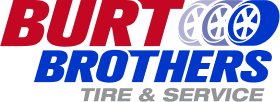My caramel-chocolate-cookie phase lasted three months. Every time I went to the grocery store, I threw one package – just one harmless little package – in the shopping cart next to all my fresh produce. Soon I found myself making excuses to go to the grocery store midweek, with my mouth watering for my special kind of cookie.
When I realized what was happening, I did the responsible thing and conducted a taste test. The name-brand cookies cost $3.69 per package, but the store-brand cookies only cost $2.00. Was the name-brand package worth the extra cost?
Taste-testing can be an entertaining party trick, but when it comes to something you buy over and over – and something expensive – then comparing products becomes a practical and important exercise.
So what does this cookie odyssey have to do with tires? Well, tires are something most of us purchase over and over again, and tires cost much more than a package of cookies. Nevertheless, the same questions I pondered with cookies apply to tires: Is it OK to buy cheap ones? How much does cost correlate with quality? Are more expensive ones worth the cost?
Let’s take a look at these questions one by one.
Is it OK to buy cheap tires?
The quick answer is that quality, not price, should guide your buying decision. Quality is more important than the brand or the price.
Most expensive tire brands have a cheaper subsidiary that is still considered similar quality. For example, Riken is a cheaper brand sold by the well-respected Michelin brand. Riken is not rock-bottom cheap, so in a larger view of the tire industry, Riken is considered mid-range.
A cheaper tire, such as Riken, from a well-known company, is not a poor quality tire. It’s cheaper because the technology is a bit older and because the marketing is less involved. Educated employees at a tire shop would know about these kinds of brand connections that might escape a non-initiated shopper.
How can I identify a quality tire? Does a higher price mean higher quality?
Go to a trusted tire dealer such as Burt Brothers, which only carries quality tire brands. If you would rest easier having a second opinion, you can also check online review sites such as TireRack.com. TireRack.com is a popular and well-respected review site. Online review sites list both the tires’ testing records and customer reviews. Online sites post reviews of various brands that you can use to confirm what you hear at your tire shop.
You might wonder if buying a cheaper tire means scrimping on safety. It doesn’t make sense to skimp on tires when they keep you alive in an accident or in poor weather. The cheapest tires are made with lower quality rubber that can affect the braking distance. It goes without saying that an accident will end up costing you more than you might have saved by buying cheap tires.
Cheaper tires are more expensive in the long run if they contribute to a road accident. This is why a responsible tire shop won’t stock the very cheapest tires on the market. A mid-range tire will provide the best value for non-niche drivers.
In the U.S., tires have three ratings (Temperature, Treadwear, and Traction) that affect cost. Traction can be a big factor to consider if you must drive in wet or snowy weather to make your commute in the winter, for example. Whether you live in Bountiful or Sandy, or anywhere in between, the chances are high that you’ll be driving on snowy roads in the winter. The traction rating may be especially important along the Wasatch Front.
Besides safety concerns, the very cheapest tires provide poor durability. If the tires are too cheap, then you will end up replacing them so often that the cost savings are lost. In addition, cheap tires lower your gas mileage and produce more noise than mid-range and higher-end tires.
Mid-range tires will last a long time and provide all the traction that you would need to drive around town. Sometimes the more expensive tires in a tire shop are for high-performance vehicles driving on canyon roads or race tracks. Expensive tires are rarely good value, meaning that you will pay for more than you need. There is no great value in buying premium tires to get high mileage, for example, if you don’t expect to put a lot of miles on your car. Mid-range tires are usually considered the best value for non-specialized drivers.





